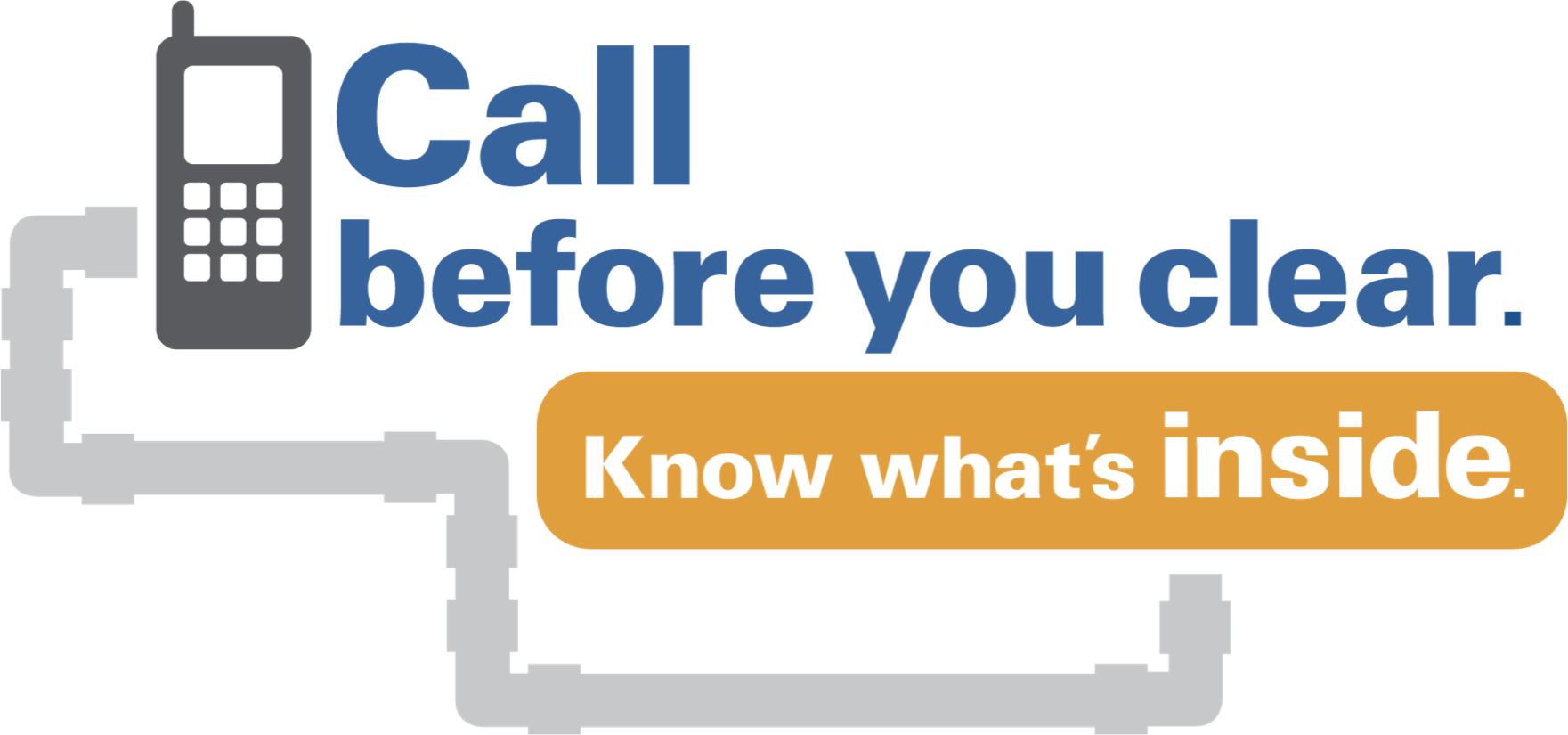Encourage Your Kids to be Energy Safe Kids!
Play the fun, interactive natural gas safety game created just for kids. Learn about natural gas and how be safe around it.
Energy Safe Kids
It smells bad for a reason.
In its untouched state, natural gas is actually odorless. For safety reasons, Southwest Gas injects an element called mercaptan, which emits an odor similar to sulfur or rotten eggs. Here’s the simple rule…If you smell rotten eggs, leave the area, then call us for help, whether you have natural gas at your home or business or not.
How to Identify a Leak

Smell
Smell a distinct sulfur-like odor, similar to rotten eggs, even if it's faint or momentary.

Hear
Hear a hissing or roaring coming from the ground, aboveground piping, or a natural gas appliance.

See
See dirt or water blowing into the air, unexplained dead or dying plants or grass, or standing water continuously bubbling.
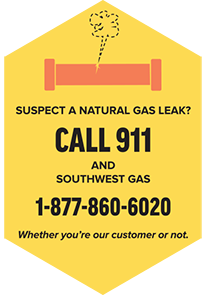
Learn the signs of a natural gas leak and what to do if you suspect one.
What do you do if you suspect a leak
-
Exit the area or building immediately. Tell others to evacuate and leave doors open.
- From a safe place, call 911 and Southwest Gas at 877-860-6020 , day or night. A Southwest Gas representative will be there as soon as possible
- Don’t smoke or use matches or lighters
- Don’t turn on or off any electric switches, thermostats, or appliance controls, or do anything that could cause a spark
- Don’t start or stop an engine or use automated garage doors
Digging?
Every digging job requires a call to 811 before you dig - even small projects like planting trees or shrubs. Whether you're a homeowner or professional excavator, one call to 811 before you dig gets underground utility-owned lines marked for FREE.
It's Free. It's Easy. It's the Law.
Digging without calling can result in a natural gas leak, which has the potential to disrupt service to an entire neighborhood, cause an evacuation, fire, property damage, injury, or loss of life, and potentially result in fines and repair costs. Calling 811 before every digging project gets your underground utility-owned lines marked for free and helps prevent undesired consequences. Be aware, however, that customer buried piping can't be located by calling 811.

|
Call 811 at least two working days before starting any digging project.
|

|
Wait for the Site to be marked |

|
Respect the Marks |

|
Dig with care - use only hand tools when digging within 24 inches of a marked gas line. |
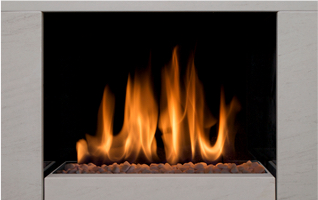

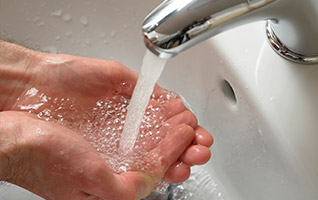
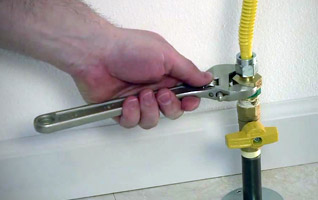
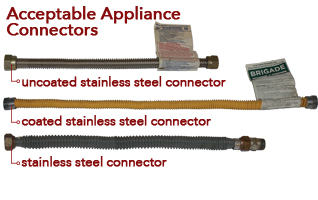
Natural gas appliances are very safe. However, like all appliances, if improperly maintained or malfunctioning, they can be dangerous. One of those dangers is exposure to carbon monoxide. Carbon monoxide is produced by the incomplete burning of fuel, including natural gas. It’s a poisonous, odorless, and colorless gas that can be fatal. Any suspected carbon monoxide exposure is an emergency.
Symptoms of Carbon Monoxide Exposure
- Flu-like symptoms
- Dizziness
- Headache
- Fatigue
- Nausea
- Shortness of breath
- Mental confusion
- Vomiting
- Loss of muscular coordination
- Loss of consciousness
Carbon Monoxide Detectors
The U.S. Consumer Product Safety Commission recommends that consumers install carbon monoxide detectors. They also advise that a carbon monoxide alarm can provide some added protection, but it’s no substitute for proper use and upkeep of appliances that can produce carbon monoxide. Additional information can be found on their website at
Consumer Products Safety Commission
.
Special note for California residents: Make sure your structure has functioning carbon monoxide detectors as required by California Health and Safety Code §17926. More about this law can be found in the California Carbon Monoxide Poisoning Prevention Act of 2010.
Please note: Southwest Gas does not inspect for the absence of carbon monoxide detectors, their placement, or install or service these detectors.
Leave the premises and get into fresh air immediately.
CALL 911
Call 911 or your local emergency number as soon as possible to get medical attention.DON'T RE-ENTER THE BUILDING
Don’t re-enter the building until an emergency official has determined the building is safe and you’ve been given permission to do so.
Prevent Carbon Monoxide Emergencies
Southwest Gas recommends that you have your natural gas appliances serviced annually by a trained professional. In addition to keeping your appliances operating at optimal efficiency for energy conservation, this is one of the best ways to prevent carbon monoxide emergencies. For a list of qualified plumbers, contractors, or appliance dealers,
check out our referrals
, search online, or call our Energy Specialists at 800-654-2765.
Southwest Gas technicians and our approved contractors are constantly patrolling and working in the areas we serve, performing maintenance, service and routine leak surveys to ensure the safety of the community. Often times, our technicians need access to the meter on the side of your home or business for upkeep and maintenance. If someone shows up to perform services that you haven’t requested, do not let them into your home or business until you take these steps to verify their identity:
- Ask for an identification badge. Most employees and contractors have badges with either the Southwest Gas logo or the Southwest Gas Contractor logo.
- Observe their uniform. Many Southwest Gas employees and contractors will wear a company uniform. Contractors may be wearing a hard hat or ball cap with the Southwest Gas Contractor logo.
- Look for their vehicle. The same logos may also be affixed to the technician’s vehicle.
- Inquire about their visit. Employees and contractors will identify themselves and the purpose of their visit.
- Only give permission when you feel comfortable. Employees and contractors will only enter your home at your request.
- If you’re still unsure, please call Southwest Gas Customer Service at 877-860-6020 , 24 hours a day, 7 days a week, to verify their identity.
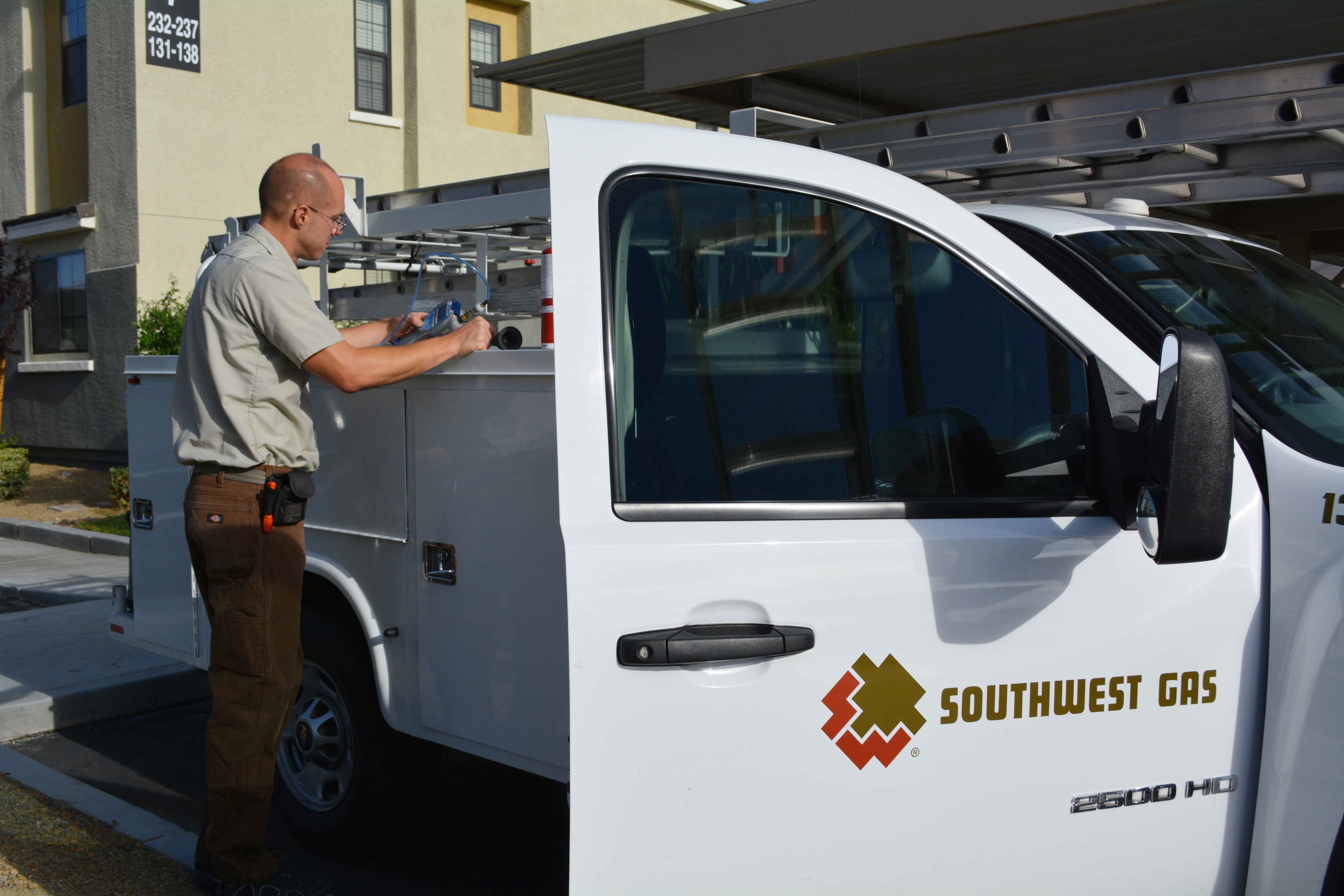
Scam Alert
Southwest Gas may contact customers regarding their account but will never call or show up in person to demand payment with the threat of a disruption of service. If you receive a call from our representatives, they will simply verify your identity to discuss your account. Any calls that ask you to make an immediate payment should be considered a scam, so please do not provide any personal information and hang up. You can call
877-860-6020
to verify the legitimacy of any calls that you receive.
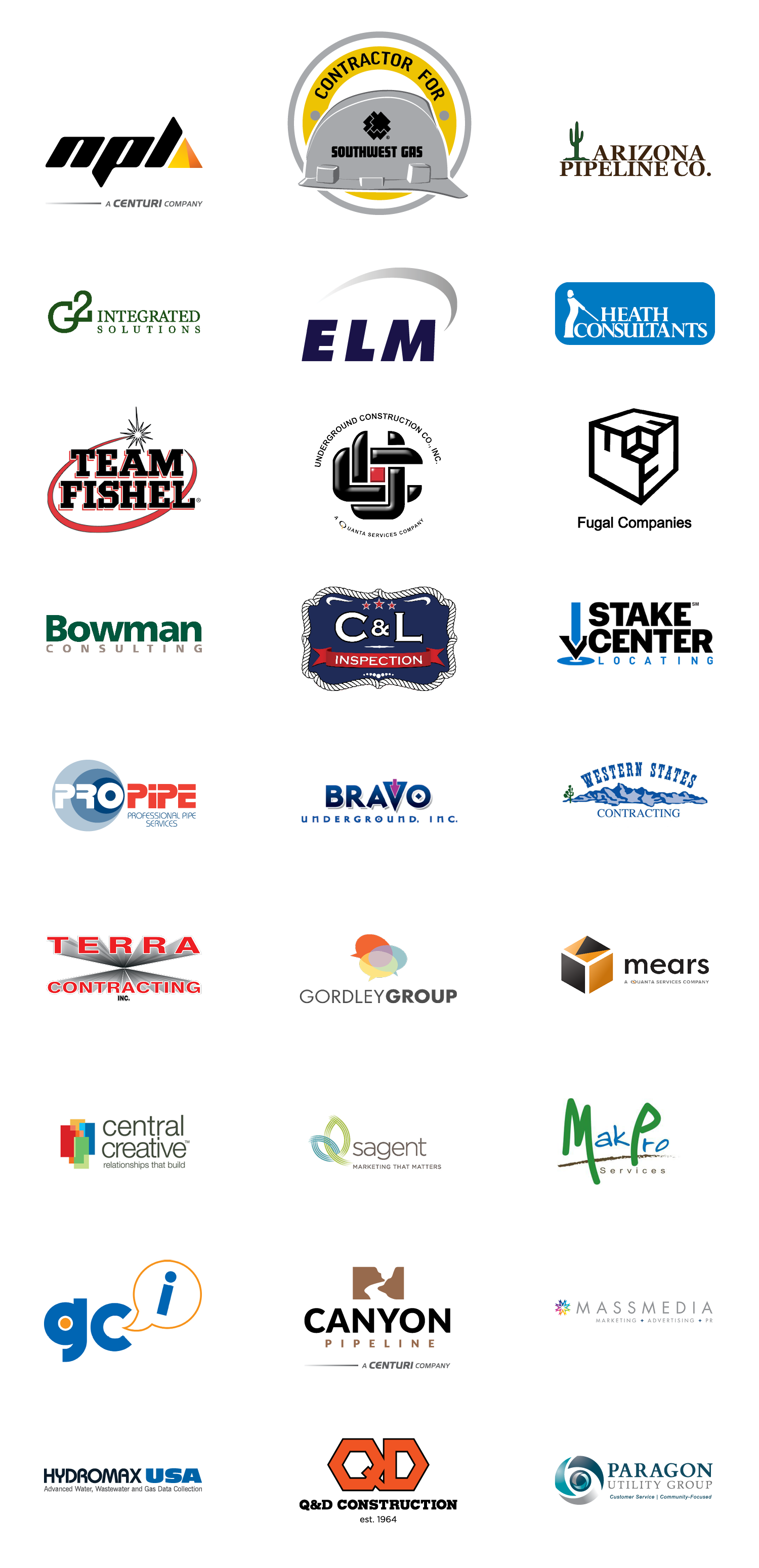
Southwest Gas also works with other contractors, whose logos may not be listed here. Please refer to safety tips above.
Natural gas utilities across the country have discovered locations where natural gas pipes were inadvertently installed through sewer pipes. This doesn’t create a safety hazard so long as the natural gas pipe is undamaged. However, damage to natural gas pipes can occur when equipment is used to unclog sewer pipes. This can lead to a natural gas leak that could result in a fire or explosion, possibly causing injury or death to those who unclog the sewer pipes and to those in structures attached to the sewer pipe.
SENSE A BUMP? CALL IT IN!
If you or your plumber sense or see that there might be an obstruction or blockage in the sewer line connecting a house or business to the main sewer line, call Southwest Gas at 877-860-6020 and press "9" for immediate assistance to ensure that a gas line is not affected or has not been damaged. There is no charge for this service.
In addition, if you’re planning sewer work, call Southwest Gas at 877-860-6020 and press "9" for a line location of underground gas lines prior to cleaning out a sewer line with a rooter device. The service is free.
CROSS BORE SAFETY FOR HOMEOWNERS
A clogged sewer outside your home could mean there's a gas line intersecting the sewer pipe. Watch this video to learn what to do before clearing a sewer clog.
Take immediate action if you encounter any of the following signs when you, or your plumber, clean out a sewer line with a rooter device:
- A natural gas odor at the cleanout or inside the building served by the sewer line, even if it’s faint or momentary.
- Bubbles rising through standing water or in the toilet bowl.
- Leave the area immediately and from a safe place, call 911 and Southwest Gas at 877-860-6020 immediately, day or night. A Southwest Gas representative will be there as soon as possible.
If you’re a property owner or manager, tenant and/or occupant, you’re responsible for maintaining all gas lines on your side of the meter. This “customer buried piping” includes all gas lines running from the gas meter to the appliances or equipment on your property. In some cases, the meter may be located at your property line or a distance away from your home or business.
For Arizona residents, you may be qualified for our free leak inspection and Customer-Owned Yard Line (COYL) replacement. Learn more about our
COYL Program
.
A licensed, qualified plumber or contractor can assist you in finding, inspecting and repairing your customer buried piping.
Search a list of contractors
in your area or call our Energy Specialists at 800-654-2765.
To keep your home or business safe

Monitor and properly maintain the natural gas lines you own

Periodically inspect your lines for leaks and/or corrosion

Repair the lines immediately if any unsafe condition is discovered

Hand dig when excavating near any buried gas piping
An excess flow valve (EFV) is a device that automatically closes and restricts the flow of natural gas if a service line is broken. The EFV is installed on the service line that runs underground between the gas main and the meter on a customer’s property. Because the EFV restricts the flow of gas, it reduces the potential for explosions, fires, and personal injury. Southwest Gas has installed EFVs on most residences built after June 2008.
While the valve provides enhanced safety, it won’t protect against customer appliance malfunction, customer houseline gas leaks, small punctures in the underground pipe, or gas meter leaks. An EFV may not protect against damage to pipelines from earthquakes or flooding.
If you’d like a cost estimate to have an EFV installed at your residence, or if you’d like to find out if you already have an EFV, please call our Energy Specialists at 800-654-2765 to get more information.
An earthquake or seismic shut-off valve automatically shuts off your natural gas service when an earthquake of a sufficient magnitude occurs at your home’s location. These valves can be purchased and installed through independent suppliers and contractors.
If an earthquake or other significant event causes your seismic shut-off valve to close, contact a licensed, qualified contractor to reset the valve, verify that no gas leaks exist, and perform a safety check of your gas appliances before they’re placed back into operation. For a list of qualified plumbers call our Energy Specialists at 800-654-2765.
Corrugated stainless steel tubing (CSST)
Corrugated stainless steel tubing (CSST) is a flexible, thin-walled metallic tubing used to supply natural gas in some residential, commercial, and industrial buildings. CSST often has a yellow or black plastic coating and is typically found inside walls and through and along floor and ceiling joists. It’s not the same as the flexible appliance connectors that attach directly to your gas appliances.
PROTECT AGAINST LIGHTNING
To help protect structures from potential lightning strikes, the installer of CSST and/or the owner/operator of the structure where the CSST is used should consider installing an appropriate lightning protection system pursuant to NFPA 780 or other recognized standards.
Southwest Gas doesn’t provide inspection service for CSST installations. If you’re unsure whether CSST is installed in your structure, contact your builder, contractor, or a licensed plumber for an evaluation or for more information.
Although natural gas has a very positive safety record, lack of knowledge may lead to unsafe practices. To help you identify and understand the procedures and proper handling of odorized natural gas, Southwest Gas has prepared Safety Data Sheets (SDS). If you’re an employer, please make sure that your employees are familiar with both the content and how to obtain the SDS information.
Our SDS Includes Information about:
- Emergency response information
- Chemical makeup and characteristics
- How to recognize and safely account for potential hazards that you may not be familiar with (including odor masking, odor fatigue, and odor fade)
- General precautions for safe handling and use of natural gas
- Proper purging procedures
Kids and Natural Gas Safety
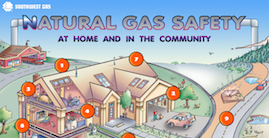
A fun, interactive challenge to test what kids know about natural gas safety.
Customer Safety Booklet

Recognizing a Natural Gas Leak
Learn the signs of a natural gas leak and what to do if you suspect one.








